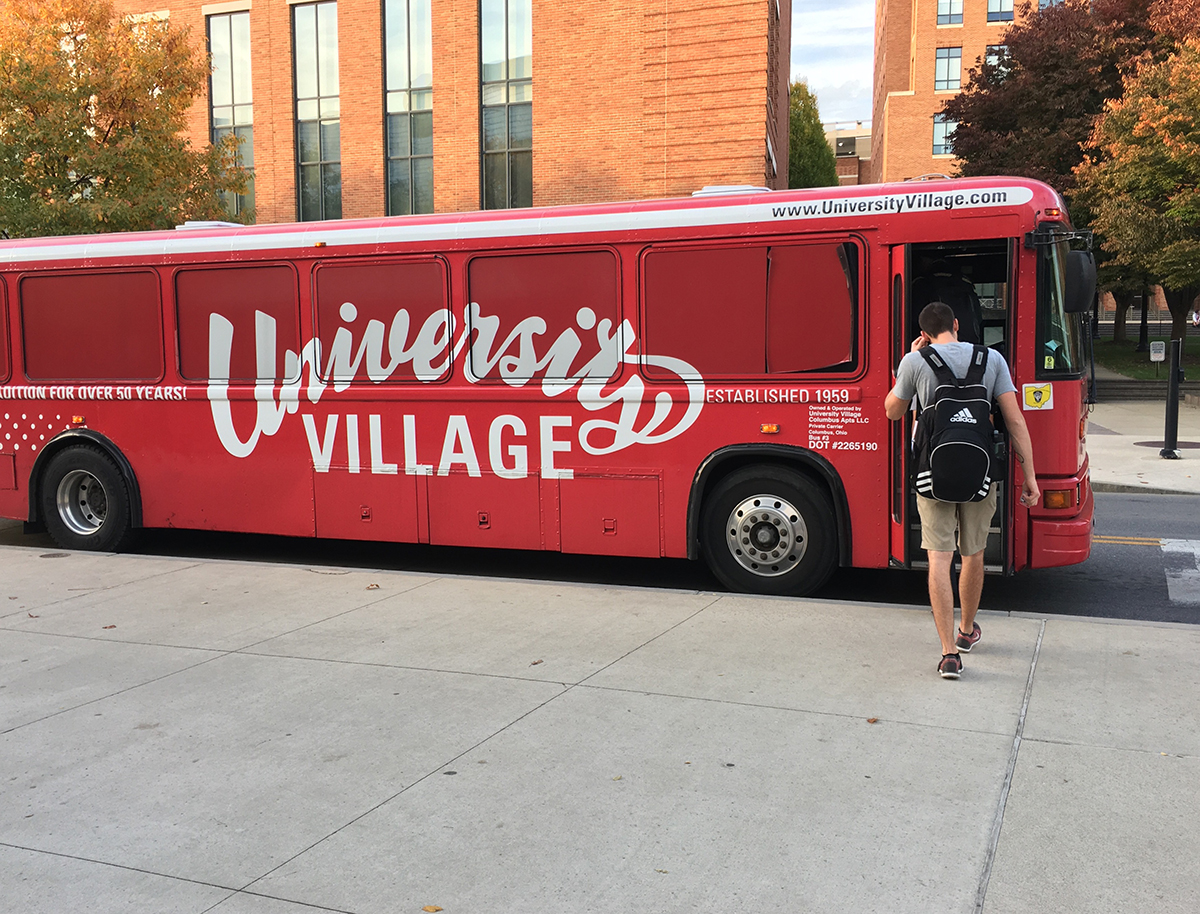
A student boards the University Village bus that transports residents of the complex to and from campus. Credit: Mitch Hooper | Former Engagement Editor
Two years after Ohio State changed its housing policy, nearby off-campus landlords noticed a shift in the housing market and have made changes — such as remodeling their units and pushing their leasing season forward — to help their companies transition to a new market.
Starting the 2016-17 academic year, second-year students were required to live on-campus residence halls or approved fraternity and sorority houses.
One year later, roughly 7,000 second-year students stayed on campus instead of potentially moving into off-campus homes. Todd Jessup, the general manager at the nearby apartment complex University Village, said the policy change didn’t significantly lower the number of people wanting to lease, but it influenced the styles of new apartments instead.
“As freshmen, you look up and down the hall of your dorm, you get five or six of your friends and you go rent a large [apartment in your second year],” Jessup said. “When students get to their junior and senior years they’re more likely to pair up with closer friends and move into a smaller apartment or house.
“I think that was the biggest impact that we saw.”
He attributed the change to maturing students and upperclassmen who want to have a smaller group of roommates.
Kelly McCafferty, the leasing manager for University Manors, viewed the change differently and said the updated housing policy forced McCafferty to push the leasing season to earlier in the Autumn Semester.
“Because students are living on campus a second year and with groups of people they have already known for a year, they seem better prepared for leasing season,” McCafferty said. “They know the area better and know exactly what they want and where they want it.”
Though it is evident that the policy change influenced the off-campus housing market, Jessup said any landlord should be able to combat this by simply paying attention to what the tenants want in off-campus living.
“Whatever property you may have whether large or small, if you were cognizant of the market and you made sure you were positioned well in it, there is really no negative impact from [the change] in my opinion,” Jessup said.
In response to the second-year living policy, University Village transformed 40 three-bedroom apartments into two-bedroom studio apartments to better market to students who want smaller living areas, Jessup said.
Though not as big of a renovation, McCafferty said University Manors has made changes to its amenities in its 350-plus units near campus, like updating some kitchens with new dishwashers and cabinetry.
Both Jessup and McCafferty expect their properties to be fully occupied for the foreseeable future.


